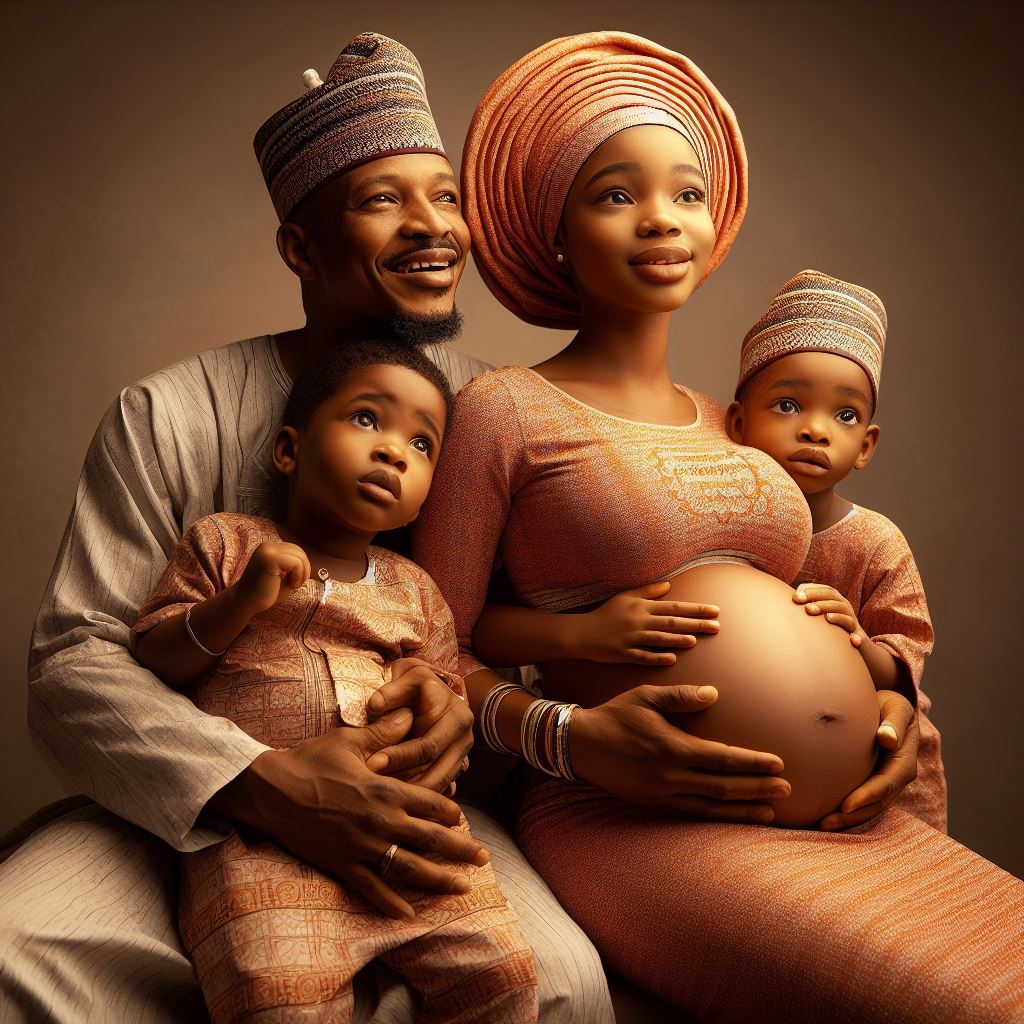Introduction
Gender equality is a fundamental principle that transcends cultural boundaries, and instilling this value in children is crucial for fostering a just and inclusive society.
In Nigeria, where cultural norms often perpetuate gender stereotypes, addressing these biases early on becomes imperative.
This blog post aims to explore the significance of teaching gender equality to children in Nigeria, offering insights into the current situation and proposing effective strategies for fostering change.
Educating children about gender equality goes beyond promoting fairness; it shapes their attitudes, behaviors, and perceptions from a young age.
By instilling these values early on, we empower the next generation to challenge and break down existing gender stereotypes, fostering an environment where everyone has equal opportunities, regardless of their gender.
Nigeria, like many other countries, grapples with deeply ingrained gender norms.
Traditional roles often confine women to domestic spheres, limiting their access to education and professional opportunities.
This imbalance not only perpetuates gender disparities but also stifles the potential of half the population. Recognizing this, there is a growing need to address these issues through education.
This blog post will delve into effective strategies for teaching gender equality to children in Nigeria.
In the subsequent sections, we will explore practical initiatives, educational reforms, and community involvement, shedding light on how these strategies can collectively contribute to a more gender-inclusive society in Nigeria.
Understanding Gender Equality
In the vibrant tapestry of Nigeria’s diverse society, fostering a culture of gender equality is pivotal for shaping a progressive future.
It is imperative to unravel the layers of this profound concept to effectively instill its values in the minds of our children.
Gender Equality and Its Importance
Gender equality is the bedrock of a just and balanced society.
It encompasses the equal rights, opportunities, and treatment of individuals, irrespective of their gender.
In the context of Nigeria, a nation rich in tradition, emphasizing the importance of gender equality is essential.
Parenting Made Just for You
Get personalized Parenting Solutions tailored to your child’s needs. Transform your parenting journey with expert guidance in 1-3 days.
Get StartedBy imparting this knowledge to children, we empower them to become advocates for change.
They will understand that every person, regardless of gender, deserves respect, dignity, and equal opportunities.
How Gender Stereotypes and Biases Affect Society
Gender stereotypes and biases are pervasive in many societies, including Nigeria.
These preconceived notions limit individuals, perpetuating inequality.
Teaching children about these biases is crucial. It enables them to question stereotypes and break free from societal expectations.
By doing so, they contribute to dismantling the barriers that hinder progress and inclusivity.
The Benefits of Promoting Gender Equality in Nigeria
The benefits of promoting gender equality in Nigeria are manifold.
By dismantling gender-based constraints, we foster a society where every individual can reach their full potential.
This not only promotes economic growth but also ensures a more harmonious and just society.
Educating children about these benefits nurtures a generation that understands the inherent strength in diversity, paving the way for a more equitable and prosperous Nigeria.
In essence, instilling a deep understanding of gender equality in Nigerian children is a transformative step towards a brighter future.
By defining its principles, exposing the detriments of stereotypes, and highlighting the numerous benefits, we equip our youth with the knowledge and conviction to champion a more inclusive and egalitarian society.
Read: Understanding Ovulation: A Guide for Nigerian Parents
Challenging Gender Stereotypes
Common gender stereotypes prevalent in Nigerian society
In Nigeria, as in many societies, gender stereotypes persist, shaping the expectations and roles of individuals from a young age.
Unveil the Perfect Name that Tells Your Family's Story
Let us help you find a name that embodies your family's values, traditions, and dreams. Our personalized consultation weaves cultural insights to create a name that's uniquely yours.
Get Started- Common stereotypes include the notion that boys should be tough and avoid showing vulnerability, while girls are expected to be nurturing and prioritize appearance.
- These stereotypes not only limit individual expression but also reinforce harmful gender norms.
- Boys are often discouraged from expressing their emotions, fostering a culture where vulnerability is perceived as weakness.
- On the other hand, girls may face pressure to conform to societal beauty standards, overshadowing their intellectual capabilities.
- These stereotypes contribute to a skewed perception of gender roles and hinder the development of a society where individuals can thrive regardless of their gender.
The impact of these stereotypes on gender roles and expectations
- The impact of gender stereotypes is profound, influencing various aspects of life in Nigeria.
- From early childhood, children are molded into predetermined roles, limiting their potential.
- Boys who internalize the idea that they must be stoic may struggle with emotional intelligence, while girls may find it challenging to assert themselves in traditionally male-dominated fields.
- These stereotypes also perpetuate inequality, as they contribute to the gender wage gap and limit opportunities for both men and women.
- The societal expectations associated with gender roles can lead to discrimination, reinforcing the belief that certain professions or behaviors are inherently linked to one’s gender.
The importance of challenging and debunking stereotypes
- Challenging gender stereotypes is crucial for fostering a more equitable society.
- Educators and parents play a pivotal role in reshaping these narratives by encouraging children to explore their interests without fear of judgment based on gender.
- Schools should promote inclusive curricula that break down traditional gender roles and showcase diverse role models.
- By challenging stereotypes, we empower children to embrace their authentic selves, fostering a society where everyone has equal opportunities.
- It’s essential to initiate conversations that question ingrained beliefs and encourage critical thinking.
Through education and open dialogue, we can pave the way for a Nigeria where gender equality is not just an aspiration but a lived reality.
Read: Infertility Counseling: A Vital Resource in Nigeria
Talking to Children about Gender Equality
In a society like Nigeria, where traditional gender roles have deep roots, teaching children about gender equality is crucial for fostering a more inclusive and progressive future.
By initiating conversations about gender equality early on, we can dismantle stereotypes and empower the next generation to embrace diversity.
Why it is necessary to talk to children about gender equality
Children are sponges, absorbing information from their surroundings.
By discussing gender equality, we lay the foundation for a society where individuals are valued for their abilities, irrespective of gender.
These conversations challenge harmful stereotypes, promoting empathy and respect.
Age-appropriate methods for discussing gender equality
- Preschool Age: Introduce simple concepts of fairness. Use stories and role-playing to show that everyone can do various tasks, irrespective of gender. Emphasize the importance of sharing toys and responsibilities equally.
- Elementary School Age: Discuss historical figures who defied gender norms. Encourage critical thinking by asking questions like, “Can boys and girls both be doctors?” Highlight that abilities aren’t determined by gender and showcase diverse role models.
- Middle School Age: Introduce the idea of gender stereotypes and their impact. Discuss how these stereotypes limit opportunities. Encourage group discussions and projects that challenge preconceived notions.
- High School Age: Delve into the complexities of gender issues, including intersectionality. Discuss wage gaps, representation in leadership, and the importance of consent. Foster a safe space for questions and debates.
Encouragement for open and honest conversations with children
Create an environment where children feel comfortable discussing gender-related topics.
Address their questions honestly, promoting understanding and acceptance.
Encourage empathy by discussing experiences from different perspectives.
By fostering open communication, we empower children to be advocates for gender equality in their communities.
Basically, teaching gender equality to children in Nigeria is a proactive step toward a more inclusive and equitable society.
By tailoring conversations to different age groups, we can instill values of fairness and respect, laying the groundwork for a brighter and more equal future.
Read: Balancing Gender Roles: Modern Parenting in Nigeria

Promoting Gender Equality at Home
In the journey towards a more equitable society, it is paramount to start at the grassroots level — the family.
In Nigeria, instilling the principles of gender equality in children is a crucial step towards creating a more inclusive future.
This section explores the pivotal role parents play in promoting gender equality at home and offers practical strategies for fostering a culture of fairness and respect.
The role of parents in promoting gender equality
Parents serve as the primary influencers in a child’s life.
By engaging in open conversations about gender roles and expectations, parents can shape their children’s perspectives from a young age.
Encourage discussions that challenge stereotypes, emphasizing the importance of equality and mutual respect.
Practical strategies for fostering gender equality at home
Sharing household chores
Break down traditional gender norms by assigning chores without regard to gender.
Teach children that everyone is responsible for maintaining the home environment.
This not only instills a sense of responsibility but also dismantles the idea that certain tasks are inherently tied to a specific gender.
Encouraging equal opportunities and responsibilities
Create an environment where both boys and girls have equal access to educational and extracurricular opportunities.
Encourage diverse interests and pursuits, reinforcing the idea that one’s gender should not limit their aspirations or capabilities.
Promoting respect and empathy
Teach children the importance of respecting each other’s opinions and perspectives.
Instill empathy by helping them understand the challenges faced by individuals of different genders.
This not only cultivates compassion but also fosters an environment of understanding and acceptance.
The importance of leading by example
Children are keen observers, and they learn by modeling their behavior on the significant adults in their lives.
Parents must demonstrate the principles of gender equality through their actions, treating each other with respect and sharing responsibilities equitably.
This not only reinforces the values verbally communicated but also provides a tangible example for children to emulate.
Essentially, promoting gender equality at home lays the foundation for a more inclusive society.
By engaging in open discussions, implementing practical strategies, and leading by example, parents can contribute significantly to shaping a future where equality is not just an ideal but a lived reality.
Read: Exploring IVF: A Guide for Nigerians Facing Infertility
Encouraging Gender Equality in Education
In Nigeria, fostering gender equality begins with reshaping the educational landscape, ensuring that boys and girls have equal opportunities to learn and thrive.
Addressing existing gender disparities is the first crucial step towards creating a more equitable future.
The Existing Gender Disparities in Education
The gender gap in education is a pervasive issue, with girls often facing barriers that hinder their access to quality learning.
Tackling this begins with acknowledging the disparities and actively working to bridge the divide.
Data collection and analysis are vital to understanding the scope of the problem, paving the way for targeted interventions.
Ways to Promote Gender Equality in Schools
- Implementing Inclusive Curriculum: Schools must adopt curricula that challenge stereotypes and promote inclusivity. By integrating diverse perspectives, children can develop a more nuanced understanding of gender roles and societal expectations.
- Supporting Girls’ Education: Empowering girls through education is key. Scholarships, mentorship programs, and community outreach initiatives can break down financial and cultural barriers, ensuring that girls have equal access to learning opportunities.
- Reducing Gender-Based Violence and Discrimination: Schools should be safe spaces for all students. Implementing strict policies against gender-based violence and discrimination, along with awareness campaigns, can create an environment where every child feels secure and respected.
Advocating for Educational Institutions to Address Gender Inequality
Advocacy is a powerful tool for change.
Engaging with educational institutions to prioritize and actively address gender inequality is essential.
This involves encouraging the establishment of gender equality committees, providing training for teachers on gender-sensitive teaching methods, and fostering partnerships with organizations dedicated to promoting equality.
Ultimately, achieving gender equality in Nigeria’s education system requires a multi-faceted approach.
By acknowledging existing disparities, implementing inclusive curriculum, supporting girls’ education, and actively advocating for change, we can pave the way for a more equitable and just society.
It is through education that we plant the seeds of understanding, tolerance, and respect, nurturing a generation that values and upholds the principles of gender equality.
Engaging the Community
In the pursuit of instilling the values of gender equality in the minds of young Nigerians, community involvement plays a pivotal role.
The significance of community involvement in teaching gender equality
Communities serve as the cornerstone of social development, and involving them in the journey towards gender equality is paramount.
It not only reinforces the importance of collaboration but also ensures that the message is widespread and ingrained in the fabric of society.
When communities come together to champion gender equality, children witness the collective strength that supports an inclusive and equitable society.
The role of religious, cultural, and community leaders in promoting gender equality
Religious, cultural, and community leaders hold influential positions that can shape perspectives.
By leveraging their authority, these leaders can actively promote gender equality within their respective domains.
Religious teachings emphasizing equality, cultural practices promoting inclusivity, and community leaders serving as role models collectively contribute to a holistic approach.
When these influential figures align their efforts, the impact is not only profound but also lasting.
Suggestions for community-based initiatives and programs
To initiate change at the grassroots level, community-based initiatives must be diverse and sustainable.
Encourage the establishment of gender equality awareness programs within places of worship, cultural events, and community gatherings.
Collaborate with local leaders to organize workshops that educate parents and caregivers about the significance of fostering equality from a young age.
Create mentorship programs where community members, irrespective of gender, guide and inspire the younger generation.
Moreover, community-driven campaigns, such as street plays and art exhibitions, can creatively convey the message of equality.
Establish community watch groups that monitor and address instances of gender-based discrimination, fostering a sense of responsibility among community members.
All in all, teaching gender equality to children in Nigeria requires a comprehensive and community-driven approach.
By actively engaging communities and enlisting the support of influential leaders, we can pave the way for a society that values and upholds the principles of equality for all, transcending religious, cultural, and communal boundaries.
Conclusion
In this post, we delved into the crucial topic of teaching gender equality to children in Nigeria.
We began by highlighting the existing gender disparities in the country and the importance of addressing these issues from an early age.
The discussion then shifted to the role of parents, educators, and society at large in instilling values of equality and respect in the minds of young individuals.
We explored the significance of age-appropriate education, emphasizing the need for age-sensitive discussions about gender roles and stereotypes.
By fostering open dialogues, we can challenge ingrained biases and cultivate a generation that questions societal norms.
Additionally, we stressed the importance of inclusive curricula that reflect diverse perspectives and achievements, ensuring that both boys and girls see positive role models from all walks of life.
Teaching gender equality to children in Nigeria is not just a moral imperative but a strategic investment in the nation’s future.
By equipping the younger generation with a deep understanding of equality, we empower them to contribute to a more just and harmonious society.
Breaking the cycle of gender stereotypes leads to more empowered individuals who can pursue their passions and contribute their unique talents to the betterment of Nigeria.
Moreover, promoting gender equality is essential for economic development.
A workforce that values diversity and inclusion is more innovative, adaptable, and resilient.
By fostering an environment where everyone, regardless of gender, has equal opportunities, Nigeria can harness the full potential of its human capital.



